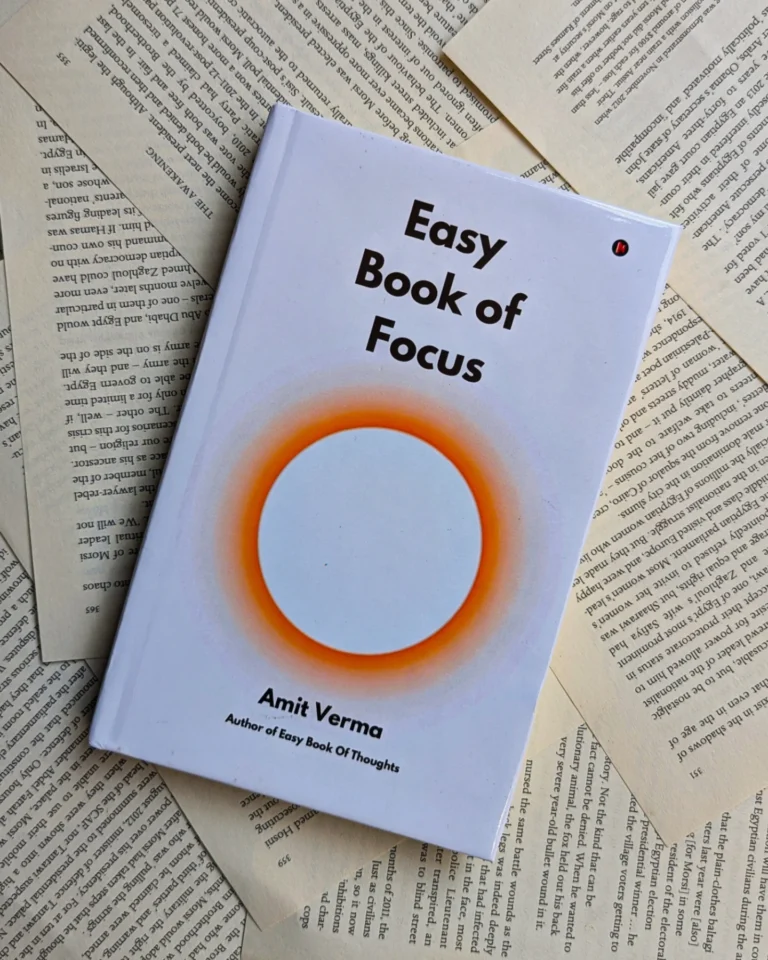10 Must-Read Books to Improve Conversations, Build Connections, and Communicate with Confidence
Great conversations are the foundation of meaningful connections. Whether you’re looking to become more articulate, improve your social skills, or engage in deeper discussions, reading the right books can give you the knowledge and confidence to spark engaging dialogues.
Conversations are not just about exchanging words; they involve active listening, emotional intelligence, and the ability to present ideas effectively. This curated list of ten books will help you enhance your conversational skills, broaden your perspectives, and make your interactions more insightful and enjoyable.
By integrating these lessons into your daily life, you will notice an improvement in how you connect with others, whether in casual settings, professional environments, or deep philosophical discussions.
1. How to Win Friends and Influence People by Dale Carnegie
This classic self-help book teaches practical techniques for improving social interactions, building rapport, and leaving a lasting impression on others. Carnegie’s timeless principles make it easier to connect with people and engage in conversations that feel natural and meaningful.
The book emphasizes the importance of showing genuine interest in others, remembering names, and making people feel valued. It teaches that being an excellent conversationalist is less about talking and more about listening attentively, responding thoughtfully, and making the other person feel important.
With real-world examples and actionable tips, this book serves as an essential guide for anyone looking to enhance their personal and professional relationships.
Key Features:
- Techniques for effective communication and persuasion.
- Tips on making people feel valued and understood.
- Strategies to turn small talk into impactful discussions.

2. The Art of Conversation: A Guided Tour of a Neglected Pleasure by Catherine Blyth
Catherine Blyth’s book is a delightful exploration of how conversations work and how to master the art of engaging dialogue. She provides insights into listening, responding, and keeping discussions lively and enriching. In an era where digital communication has reduced face-to-face interactions, this book highlights the lost art of meaningful conversations and how to reclaim it. It provides readers with strategies to handle awkward silences, ask the right questions, and navigate difficult discussions with ease. By diving into historical and literary anecdotes, Blyth makes the subject both entertaining and educational, encouraging readers to become more confident and expressive in their interactions.
Key Features:
- Practical advice for making conversations more enjoyable.
- Techniques to avoid awkward silences.
- Historical and literary anecdotes about great conversationalists.
3. Never Split the Difference: Negotiating As If Your Life Depended On It by Chris Voss
A former FBI hostage negotiator, Chris Voss shares expert techniques on persuasion and negotiation that apply to everyday conversations. His methods help you stay calm under pressure and make your words more impactful. This book teaches readers how to navigate high-stakes discussions, whether in business or personal life, by employing psychological tactics that make people feel heard and understood. Voss introduces concepts like mirroring, tactical empathy, and calibrated questioning, which can transform even the most difficult negotiations into successful conversations. Whether you are closing a business deal, resolving conflicts, or simply trying to be more persuasive, this book provides invaluable tools to become a master communicator.
Key Features:
- Strategies for handling high-stakes conversations.
- Psychological insights into effective communication.
- Real-world applications for personal and professional life.
4. Crucial Conversations: Tools for Talking When Stakes Are High by Kerry Patterson, Joseph Grenny, Ron McMillan, and Al Switzler
This book provides a roadmap for handling tough discussions in personal and professional settings. It helps readers approach difficult topics with confidence and clarity, ensuring that conversations remain productive and respectful. Often, the most challenging conversations are the most necessary ones, whether addressing workplace conflicts, discussing relationships, or negotiating important decisions. This book teaches readers how to stay calm and articulate under pressure, listen actively, and ensure that all parties feel heard. With strategies backed by psychological research, it equips readers with the tools to transform potential conflicts into opportunities for mutual understanding and collaboration.
Key Features:
- Techniques for managing difficult conversations.
- Strategies for staying calm and collected under pressure.
- Real-life scenarios to practice crucial conversation skills.
5. Talk Like TED: The 9 Public-Speaking Secrets of the World’s Top Minds by Carmine Gallo
TED Talks have revolutionized public speaking, and this book breaks down the techniques that make the best speakers so compelling. Even if you’re not giving a speech, these insights can help you become a more engaging conversationalist. Gallo explores how storytelling, passion, and strong delivery can captivate audiences, making even complex ideas accessible and engaging. The book provides practical tips on structuring conversations, using body language effectively, and communicating with clarity and confidence. By applying these principles, readers can improve their ability to express ideas in an engaging way, making everyday conversations more compelling and impactful.
Key Features:
- Public speaking techniques that translate into everyday conversations.
- Tips for making your ideas more persuasive and memorable.
- Storytelling strategies to capture and maintain attention.

6. Difficult Conversations: How to Discuss What Matters Most by Douglas Stone, Bruce Patton, and Sheila Heen
This book provides a framework for handling uncomfortable conversations with confidence and clarity. It helps readers navigate emotionally charged discussions, whether in personal relationships or professional settings. By breaking down the psychological barriers that hinder effective communication, the book teaches how to express thoughts honestly while also being receptive to other perspectives. Through practical techniques, readers learn how to manage conflict, deliver constructive feedback, and turn tense discussions into opportunities for understanding and resolution.
Key Features:
- Techniques for handling emotionally challenging conversations.
- Strategies to maintain composure in high-stakes discussions.
- Insights into understanding different perspectives.
7. The Charisma Myth: How Anyone Can Master the Art and Science of Personal Magnetism by Olivia Fox Cabane
Charisma is often seen as an innate quality, but this book explains how it can be cultivated. Olivia Fox Cabane presents practical techniques for enhancing presence, warmth, and power in interactions. The book delves into the psychology behind charisma, providing actionable tips on body language, tone of voice, and confidence. By implementing these techniques, readers can improve their ability to connect with others, influence conversations, and leave a lasting impression.
Key Features:
- Science-backed methods to increase personal magnetism.
- Practical exercises to boost confidence and presence.
- Strategies to enhance communication and persuasion skills.
8. We Need to Talk: How to Have Conversations That Matter by Celeste Headlee
This book provides practical guidance on how to have more meaningful, engaging, and productive conversations. Celeste Headlee, a journalist and radio host, shares techniques for active listening, asking better questions, and avoiding distractions that hinder genuine communication.
Key Features:
- Practical steps to improve conversation skills.
- Techniques for active listening and deep engagement.
- Insights on reducing misunderstandings and fostering connections.
9. Thank You for Arguing by Jay Heinrichs
A fascinating dive into the art of persuasion, this book explores classical rhetoric and modern communication techniques that can make your conversations more compelling and persuasive.
Key Features:
- Persuasion techniques drawn from classical rhetoric.
- Practical applications for everyday conversations.
- Insights into structuring arguments effectively.
10. Conversationally Speaking by Alan Garner
A classic in the field of communication, this book provides easy-to-apply techniques for improving social interactions, building rapport, and becoming a more engaging speaker.
Key Features:
- Practical methods for engaging and meaningful conversations.
- Strategies to boost confidence in social settings.
- Tips for overcoming communication barriers.
Conclusion
Great conversations are more than just talking; they are about listening, understanding, and engaging in a way that creates meaningful connections. The books on this list provide essential tools to help you master the art of communication—whether through persuasion, active listening, negotiation, or storytelling. By incorporating these insights into your daily life, you can become a more confident, charismatic, and thoughtful conversationalist.
Whether you’re looking to improve social interactions, enhance workplace discussions, or simply have more engaging conversations with friends and family, these books serve as valuable guides. The key is to practice what you learn, step out of your comfort zone, and embrace each conversation as an opportunity for growth and connection. Start with one book, apply its lessons, and watch how your ability to communicate transforms over time.
Which book will you read first? Let us know in the comments!



